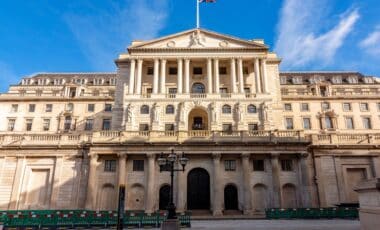The UK state pension is set to rise in April under the Triple Lock system, increasing payments for millions of retirees. However, nearly 500,000 pensioners living abroad will not receive any increase, as their payments remain frozen at the level they were when they first started claiming. This long-standing policy continues to affect thousands of people who spent decades working in the UK, only to find themselves excluded from annual pension upratings simply because of where they live.
Which Pensioners Will Be Affected and Why?
Not all UK state pensioners receive the same annual increases. While those living in the UK and certain other countries benefit from the Triple Lock, ensuring their pension rises in line with inflation, wage growth, or 2.5%, those in specific overseas locations are left behind. Pensioners in countries like Australia, Canada, and New Zealand receive no annual increases, meaning their payments are frozen indefinitely at the rate they first received them.
For many, this means watching the cost of living rise while their pension remains unchanged. A retiree who moved abroad decades ago could still be receiving the same pension amount they were originally awarded, with no adjustments for inflation. Over time, this can result in severe financial hardship, particularly for those who planned their retirement based on the assumption that their UK pension would keep pace with rising expenses.
How Much Are These Pensioners Losing?
The financial impact of frozen pensions can be devastating, particularly for those who rely on their UK pension as their main source of income. With the full new state pension rising to £221.20 per week from April, pensioners with frozen payments could be missing out on thousands of pounds per year. Over the course of a retirement, the difference can amount to tens of thousands of pounds, leaving some pensioners in a precarious financial position.
Campaigners have long argued that this policy is unfair and outdated, pointing out that UK pensioners living in certain countries—such as the EU, the USA, and other nations with reciprocal agreements—do receive the annual uprating. However, those in non-agreement countries are left without an increase, despite having made the same National Insurance contributions during their working lives as those who remain in the UK.
Is There Any Hope for Change?
Organisations such as the International Consortium of British Pensioners (ICBP) have been fighting for years to have frozen pensions scrapped, arguing that all retirees should receive equal treatment, regardless of where they live. They highlight the fact that some pensioners are living on as little as £30 per week, despite paying into the system for decades.
Despite growing pressure, the UK government has stood firm on its position, stating that it will only uprate pensions in countries where there is a reciprocal social security agreement. This means that unless the policy changes, nearly half a million retirees will continue to see their pensions remain frozen, even as their living costs rise.
What This Means for Those Affected
For many pensioners living abroad, this means yet another year without an increase in their state pension payments. While retirees in the UK and in countries with reciprocal agreements will see their pensions rise in line with the Triple Lock system, those with frozen pensions will continue to receive the same amount they were awarded when they first started claiming. In some cases, this means living on pension rates that were set decades ago, leaving many struggling to keep up with the rising cost of living.
With no indication that the government plans to change its policy, pensioners affected by the freeze are often forced to rely on personal savings, financial support from family members, or significantly cut back on their expenses to make ends meet. For those who moved abroad expecting their UK pension to provide financial security in retirement, the reality has been far more challenging than they had anticipated. Many have voiced concerns that they are being treated unfairly, given that they contributed to the UK’s National Insurance system just like those who remain in the country.









